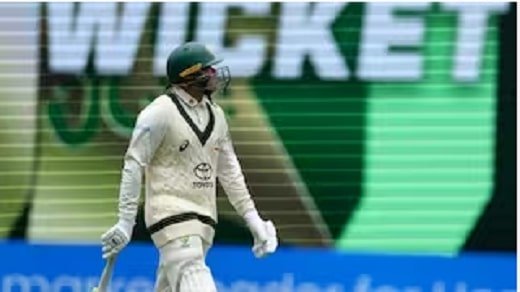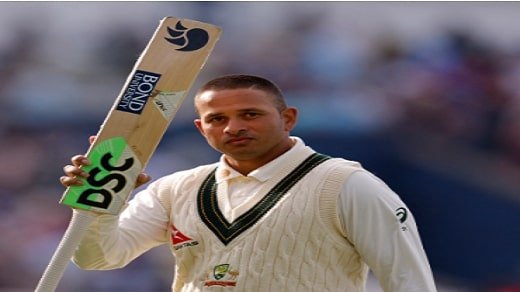In a recent turn of events, Australian cricketer Usman Khawaja finds himself contesting a reprimand from the International Cricket Council (ICC) for wearing a black armband during the test match against Pakistan. Khawaja, born in Pakistan, revealed that the armband was donned as a symbol of “personal bereavement.”
The controversy arose after the ICC reprimanded Khawaja for sporting the black armband during Australia’s impressive 360-run victory over Pakistan in the series opener at Perth. This incident followed an earlier clash with ICC rules when Khawaja was prohibited from displaying messages like ‘Freedom is a human right’ and ‘All lives are equal’ in the colours of the Palestinian flag on his boots.

Khawaja, a 37-year-old opener, expressed his intention to challenge the reprimand, emphasizing his adherence to the ICC’s rules and regulations while seeking consistency in their application.
“I told them it was for a personal bereavement. I never ever stated it was for anything else. The shoes were a different matter; I’m happy to say that,” stated Khawaja at the Melbourne Cricket Ground. “But the armband (decision) made no sense to me. I respect the ICC and the rules and regulations they have.”
This incident not only highlights the personal sentiment behind Khawaja’s choice of the black armband but also raises questions about the uniform application of ICC rules. As the cricketer pursues clarity on the matter, the cricketing community awaits a resolution that ensures consistency in the interpretation and enforcement of regulations.
The intersection of personal expression and regulatory compliance is a delicate balance, especially in the dynamic realm of international cricket. Khawaja’s case serves as a reminder of the ongoing dialogue between players and governing bodies, as they navigate the complexities of individual statements within the broader framework of the sport’s regulations.
In the spirit of fairness and uniformity, Khawaja’s challenge prompts a broader discussion on how ICC rules accommodate personal expressions of grief or advocacy, striking a balance between respecting the game’s integrity and acknowledging the individual narratives of its players.
As the cricketing world observes the unfolding developments in Usman Khawaja’s case, it remains to be seen how the ICC responds to the call for consistency and understanding in the application of its rules.




